#literally 1798
Explore tagged Tumblr posts
Text
The Hatake Clan of the year 1798, 2 years before Konoha's founding

7 / 21 accounted for (I'll make the others, or possibly beg someone to share their own with me, as I go along)
Close ups:




+ Bonus designs as I think about political machinations :

"when I looked it up, the wiki says that Iron country actually has little to no shinobi, and instead use samurai?
So, like, incooperating that, thinking that they ultimately ditch it for fire bc in 1789, the new daimyo (who is only 15 and being puppeted by his mother, the previous Daimyo's concubine, who also comes from a big samurai family) basically tells all the existing shinobi clans in iron (of which there are very few and generally keep to themselves out in the wilds) that they need to either leave, stop being shinobi alltogether, or come sit at the foot of the throne like good boys and sign some fun funky new contracts with the new daimyo heavily restricting their every move
like 2 years later Konoha is founded and the Hatake, who were looking for a way to get out of their situation, took the opportunity and ran"
Anyways I haven't slept in almost 24 hours, like holy shit, but I need everyone to look at his face tho:


He can do no wrong
Early Konoha oc art pt. [1] [2] [3] [4] [5] [6] [7]
#wolves of the woods#I have more art but that at least Ill wait to post till I actually put out a chapter but like#yippie !!!#I spent quite literally all day and night drawing this + chapter 1 comic n doodle. my tablet says Ive been drawing for almost 15 hours#my knees hurt#oh man my art motivation for specifically colored art is coming back to me#everybody cheer#woo !!!#sorry for so much oc stuff btw#but actually yk what? no Im not bc Im having fun#I love this little playground of rhe 1798 Iron Country Hatake political situation#its totally free game and I am thrashing about wildly and carefree#birds fic talk#birds ocs#birds fanart#birds art#naruto#naruto oc#hatake clan#hatake clan lore#warring states era#art#illustration#artist of tumblr#hatake oc#hatake#naruto warring states era
132 notes
·
View notes
Text
Tempered in the Fire - Part Four
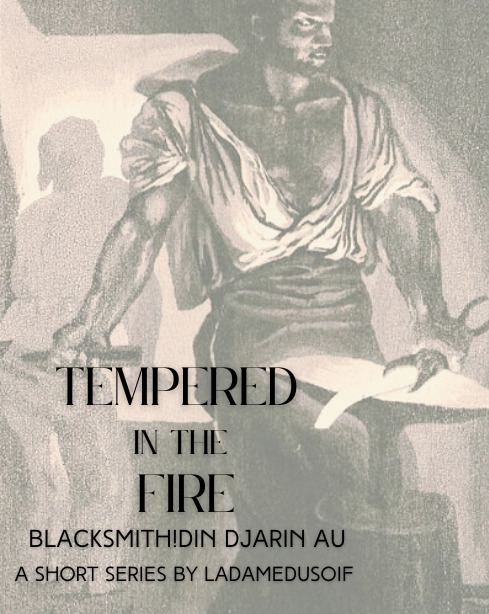
See the Series Masterlist for complete content warnings, historical event information, and series notes.
Cross-posted to AO3. Follow my writing blog @ladameecrit and turn on notifications for updates.
Pairing: Blacksmith!Din Djarin x F! Reader
Summary: Ireland, almost a decade after the rebellion of 1798. You are an unusual woman: married, but alone; a widow, with no certainty her husband is dead. When your local blacksmith is badly injured in an accident and unable to work, you have no choice but to travel to the next forge, run by a man of few words whose uncertain origins and dark complexion make him stand out among the locals. You are immediately intrigued by this mysterious, taciturn figure - and the striking little boy he’s taken as his apprentice.
Word Count: 7.1k
Rating: Explicit; 18+ MDNI (chapter; series)

Content (chapter specific): Blacksmith!Din AU; historical setting; angst; smut; violence; unprotected PiV sex; oral sex (F and M receiving); racist (anti-Traveller) language; period-typical misogyny; references to domestic physical, emotional, and sexual abuse; references to family loss and death; abusive and derogatory language; strong language.
Translations for the Irish language provided throughout as needed, though I have not translated mo chuisle as a term of endearment (it literally means 'my pulse', more usually used as 'my love').
A/N: I am so, so sorry for the gap between chapters here and am grateful to the readers who've been so patient! Thanks, too, as ever, to @paulmescal-s for working through the gnarlier bits of this story with me and being such a great sort-of beta.

In the future, after many years had passed, you would find it hard to remember exactly how much time you had together, at the forge, before the hard reality came knocking at your door. Those days and nights of domestic happiness could never have been enough.
By day, you keep house, sew, and bake. Each morning, you do some basic reading and writing with Gró, or take the little boy around the hedgerows and trees at the boundary of the property, teaching him the names of plants and animals. Din had explained your presence to him, and he beamed every morning when his father carried him down the attic ladder and he saw you again.
Din, so used to being the lone adult in the household, insists on contributing to the routine: cooking, cleaning, setting the fire. It feels so natural, so right - and yet a blade dangles over this strange little found family, ready to drop at any moment.
Each evening, Din readies Gró for bed, sometimes bathing his son in a tin bath in front of the fire while you tell him a story by way of distraction. It has quickly become a highlight of the blacksmith’s day, these moments where he watches as you make his beloved boy squeal with laughter, or hold his rapt attention with the twists and turns of a tale.
They were content and settled, this clan of two. But Din couldn’t help the daydreams about a clan of three that sometimes flashed through his mind.

He took every opportunity he could to touch you throughout the day. A squeeze of your hand at the breakfast table as Gró drained his cup of milk. A discreet kiss to your cheek as he made his way into the forge for his morning’s work. A gentle caress of your waist as he passes you while you’re laying the table for the main meal, taken in the middle of the day.
With Gró settled and asleep in the loft, the two of you moved more hastily in the evenings, now, to sort the things for breakfast and smother the fire. The sooner the chores were done, after all, the sooner you could shed your clothes and climb into his bed together.
The nervous caution of your first time together soon dissipated as you grew more familiar with each other, more in tune with each other’s needs and desires. For all his inexperience and your difficult past, the two of you are perfectly-matched lovers. The feeling of Din’s broad body on yours, glistening with sweat, begins to exorcise the demons of the past. You ride him on top, one hand intertwined with his as he squeezes your breasts and watches you come. He slips his cock inside you one morning as you’re lying together, your back pressed to his chest, and fucks you slowly and carefully until you’re both coming quietly, mouths pushed into the pillows. One evening, he was even too impatient for bed, hitching up your skirts and taking you over the heavy wooden table, hand pressed against your mouth as you whined against his palm.
“I want to learn you,” Din whispered one night, easing your long shift off so that you were completely bare, lying alongside his own naked body.
You traced your fingertips along the softness of his lips. “Learn me?”
His strong, clever fingers roamed over you as he nodded. “Learn you. Know you, all of you.” He squeezed your tits softly, sucking gently on each nipple. “Commit you to memory. How you feel, how you fit together. Do you like this?”
You wound your fingers through his messy curls and nodded. He followed the curves of your body with his broad, calloused hands, moving over your waist and holding your hips firmly as he reverently kissed your belly. He took his time, hands memorising the exact shape and volume of your form.
“You are a beauty, mo chuisle,” he murmured, dark eyes looking up at you from between your legs. “So lovely and soft and warm.”
His fingers pressed into the meat of your thighs as he mapped you out, and you felt the wetness between your legs as your hips bucked upwards, legs parting instinctively.
“Can I…see, mo chuisle?” Din’s palm grazed over the hair covering your mound. “See you…see you here?”
“Of course, my darling.” You opened your legs wider for him, watching as his eyes grew round in awe, before darkening with lust. He reached for his cock, whimpering a little as he stroked himself.
“That’s beautiful.” He had shifted his head closer to your centre, his expression a little bashful. “I’d like to kiss you here. Would that be alright?”
“Please, darling,” you hissed. “Put your mouth on me.”
“I’ve never…” He exhaled nervously as he settled between your legs, fingers already playing with your wet folds. “Never even thought of this, but…”
You ran your fingers through his hair and smiled, understanding what he was trying to say. “You’ll know just what to do, love.”
This was new to you, too, though you had heard of men doing it to their girls, especially if they were not meant to lie together. Your friend Mary had, just prior to her marriage, confided in you that she and her betrothed had found a way to sate their passions without the risk of her falling pregnant before the wedding.
“The mouth is a great thing, all the same,” she’d said, dangling her bare feet in the cool water of the local river on a warm summer day as the two of you lazed on the grassy bank, skirts hitched to your knees. She had explained the mechanisms of it to you, chuckling at your sceptical expression.
“Just wait, girleen. Just you wait and see.”
Now Din’s soft, plush lips were pressed against your slit, tongue tasting your wetness, and you finally understood what she meant. It was heaven: the way his lips brushed against the little bundle of nerves and made your whole body convulse with pleasure, the sensation of his patchy beard against your thighs, how he began to slip his tongue in and out of you. His grunts and moans vibrated against your core and you came hard against him, giggling when you saw the slick glistening all over his smiling face.
In the nights to come, you returned the favour, languidly sucking and licking at his perfect cock while he held your head in place with his broad hands, hips bucking up against you as he groaned with sheer pleasure.
You paused, reminding him that he needed to be quieter, before slipping his cock between your lips again. “‘S not my fault, mo chuisle,” he panted, eyes locked on how his hard length disappeared into your pretty mouth. “Feels far too good.”
As he came in your mouth for the first time, you’d looked up at his beautiful face, release and pleasure and affection written on every part of it, and begged whatever deity might listen to let you stay here forever.

Din is more comfortable showing his feelings through actions, physical gestures, than words. Little by little, though, you notice him opening up more, saying more. Not that he’d ever be what you could consider a talker.
One night, nestled together, you ask him to tell you about himself.
"I want to hear your story, Din.” The comforting caress of your hand against his face makes him smile softly.
"I don’t know what there is to tell.”
You cuddle closer to him, enjoying the feel of his solid frame against you. “Well, I don’t know much about your family, for one…”
He shifts a little in bed and for an instant you worry you have overstepped the mark.
“It’s not a very happy story, mo chuisle, but if you want to know…”
A kiss to the expanse of broad, tanned chest exposed at the neck of his nightshirt. “I want to know. If you want to tell me.”
He finds your hand and presses it to his chest, seeking reassurance in your familiar touch, and taking a deep breath before he begins to whisper his story to you.
"I’m a travelling person. I don’t know where I was born - other than that it was probably somewhere towards the west of the country, on a campsite. I have - had - an older sister, a younger brother. Lived off the money from whatever work my father could get - fixing pots and pans, mostly, sometimes farm labour, depending on the season.”
"A hard living.”
He nods, bringing the back of your hand to his lips. “Hard, but loving.” He inhales deeply, again, before continuing.
"We were never really wanted anywhere. Moved on, camps disturbed, even attacked, sometimes. We learned quickly how to hide at the first sign of trouble.”
He closes his eyes, a flash of sorrow crossing his beautiful features in the moonlight coming through the little cottage window. “I suppose that’s what saved me.”
For a few moments, Din is quiet.
“We had camped on land that was part of some big estate, belonging to Lord somebody or other. The usual situation. My father and a couple of our other men went fishing the first day and poaching the first night, to get us some food. I can still see the scales of the big salmon he caught, glinting in the firelight as my mother cleaned it.”
"A feast.”
He nods, a little smile on his lips at the memory, before his features darken again. “But not our feast to take. The lord’s feast, by virtue of the land being given to him by some far-off king.” He shakes his head ruefully.
"I was coming back with some cans of water the next morning when I heard shouting. The glimpses of red moving towards the camp - the yeomanry. The landlord set them on us, and they gave us no quarter. When some of our men and women tried to defend our few possessions, they - well, they turned violent.”
You hold him close, feeling the anguish in his breathing.
"I saw my father fall, killed by a blow to the head with the butt of a yeoman’s musket. My mother caught a glimpse of me, roared at me to run, to hide, and to my eternal shame I did just that. I didn’t go to them. I ran.”
"She wanted you to live, Din. She was saving you.”
He swallows hard, audible in the stillness of the night.
“The local priest found me a couple of days later, still carrying the empty can. I’d hidden in a ditch, ate blackberries to survive. He arranged for the local blacksmith and his wife to take me in, train me as an apprentice.”
He pauses again. You realise this is the most he’s probably ever said to you in one go.
“When the time came, I took to the roads myself, honing the craft before I could set up on my own. I wasn’t long back when the priest called, saying a cousin in the east knew of an empty forge in need of a good smith.”
"And that’s how you came here?”
Din nods. “That’s how I came to be here.”
You venture a sensitive question. “Din… what happened to your mother, your siblings?”
"Poorhouse. No other choice.”
Silence.
"I didn’t know where they’d gone. So much sickness in those godforsaken places…”
Another pause.
”My brother died first. Then my sister, and then my mother.”
Your voice is tiny, barely a whisper. “Did you… see them?”
"By the time we found out what poorhouse they were in… it was too late.”
Tears prick at your eyes, and you do your best not to let them fall. This is his story, his grief, not yours. Instead, you shift up the bed a little, still holding his warm body close, and lean in to caress and kiss him.
There’s a wet, salty tang on his cheek. You kiss away the silent tear.
For a moment, you think of what Din told you about how he came to adopt Gró: his unwillingness to let the boy go to a poorhouse or orphanage, his desire to protect and train the child, just as he himself had once been taken in by the smith and his wife. Just as he, himself, had once been a lost little boy.
You press your lips to the messy curls at the crown of his head.

There are times when you almost forget that you’re not really meant to be here, so natural and right does it feel. And then you are jolted back, reluctantly, to a reality where you are still technically the wife of a violent, cruel man who could claim you at any moment.
That afternoon, you hear the sound of horses approaching and immediately disappear up to the loft, as usual, until you know it’s safe to descend. You listen attentively as the door opens and breathe a sigh of relief when Gró’s delighted little voice greets Peigí, here on one of her regular visits. You hear Din enter the cottage from the forge, chatting companionably to his old friend, and make for the ladder.
You’re a few rungs down when you hear a second, less familiar voice.
“So where is she, Din?”
He stutters, the panic evident in his voice. You wonder if you can make it back to the loft.
Too late.
Father Carthy hears the sound of your skirts and turns, greeting you by name in grave tones.
“You might as well come and join us, my child.”
Peigí’s gaze is apologetic as you climb down the ladder and move to join the little cluster of adults, Din having sent Gró outside to play. You stand beside him, arms wrapped protectively over your body, resisting the urge to reach for his hand.
“I’m sorry, girleen.” Peigí wrings her hands, expression anxious and sorrowful. “Father came to see me today before I left for the forge, I couldn’t turn him out.”
You meet Father Carthy’s eyes with a look of defiance, straightening yourself to your full height, silently demanding an explanation.
“I am not here to force you home. I know your…situation.” The priest exhales deeply, fingers fiddling with the little black buttons on his long robes. “And between us and the wall and the Lord Almighty, if that kind of cruelty and abandonment was grounds for annulment… well.”
The back of Din’s hand brushes almost imperceptibly against yours.
“But you are still a married woman, and…” The cleric sighs apologetically. “My child, you were seen here. Out in the back field, with the boy. And if I’ve heard it, and people are talking, then it’s only a matter of time before -”
You interject in a low, steady voice. “Before Searlas finds out where I am.”
The priest nods sadly. “That’s why I came here. Why I came with Peigí, specifically. We… have a suggestion.” He looks expectantly at Peigí, who offers you an encouraging smile as she nods in agreement.
“My sister, Rosie - she’s in the next county, big farm, spinster, plenty of space and could do with the help. You could stay there for a bit and then come home to your own place - until they change the garrison, surely, or that wastrel Searlas can be warned off…”
You bite your lip, mulling it over.
“I mean, maybe he’s not going to come looking for me.”
Peigí and the priest exchange a concerned glance. The cleric clasps his hands together and looks at you sympathetically.
“The thing is… I have eyes and ears, as it were, in the barracks, and in the public house preferred by the garrison. I didn’t want to tell you, my dear, in case it frightened you - but he has been talking about you.” He purses his lips, almost afraid to tell you the truth. “He has openly talked about finding you, about… claiming you. And if he finds out you’ve been staying here, with a bachelor - think of your reputation, my child.”
You let out an involuntary sob, and Peigí places a comforting hand on your arm. “I think you need to be gone tomorrow, girleen. At the latest. I’m sorry, I know it’s awful quick, but…”
For the first time, Din speaks. His voice is low, controlled, serious.
“But you - I mean, she must be kept safe.” He looks at you, dark eyes full of care and concern. “If you want to stay, I will keep you safe. I promise.”
There’s nothing more you want in the world than to throw your arms around him and let him protect you, just as you long to protect him from the sorrows of his past. But his description of the day he lost his parents echoes in your mind, as does the tension that crackled in the air the day the soldiers were at the forge. You cannot - will not - bring that down on him again, nor on Gró.
“Din, if I stay here I fear that none of us will be safe. Not you, not me, not Gró. I couldn’t take that risk, my d-” You catch yourself just in time. “I mean, my dear friend.”
Peigí’s wise, inquisitive eyes dart between you and Din, and she emits a low, intrigued hum.
Din exhales in frustration. “I said I would keep you safe, here. I mean it.”
Father Carthy places a paternal hand on Din’s shoulder, expression gentle but resigned. “She’s right, Din, and you know it. Apart from her own reputation - you don’t want a troop of redcoats landing on the doorstep, do you? Think of your home, your livelihood - your son.”
The blacksmith’s expression is defiant, but you can see the reality of the situation dawning on him as the light fades from his beautiful eyes. He nods, silent, a hand twisting at the soft, worn leather of his apron.
“Early as we can after dawn tomorrow, then?” Peigí squeezes your hand as she waits for your answer.
You cannot bring yourself to look at Din as you nod in agreement.

It is still bright outside, just about, when Gró is settled for bed and the dinner things cleared and tidied away. You have packed up your saddlebags in silence, fighting the tears that threaten to fall at any moment.
Din’s broad hand reaches around your waist as he moves past you, pulling you close to him. He nuzzles into the crook of your neck, kissing the delicate skin.
“Can we take a little walk, mo chuisle? Before night falls?”
You face him, tracing the line of his jaw with your fingers. “A little one. Don’t forget there’s a little boy asleep in the loft, we can’t go too far.”
He presses his lips to your fingertips before kissing you on the forehead.

You walk hand in hand in the dusk, wandering through the field at the back of the forge towards the old oak tree that stands at the boundary of the property. Din is quiet - even quieter than usual, just casting occasional glances in your direction and squeezing your hand with a gentle smile.
In the shadow of the oak, he kisses you deeply, pressing your body against the tree as he holds your face in his big, strong hands.
“I don’t want to go, Din.”
“I don’t want you to go, mo chuisle.” He kisses you again, chastely, and looks in your eyes. A question hovers on the tip of his tongue.
“Tell me, my darling.”
He holds your hands, grounding himself a little in your comforting touch.
“I want you to take Gró to Peigí’s sister’s. Please.”
Even in the half-light, he can read the shock on your face.
“Oh, Din, I… I couldn’t. I couldn’t see the two of you parted, he’d be lost without you and you without him and-”
He shakes his head firmly. “I have to keep you safe - both of you. And if a gang of redcoats turned up and it was just me and him…”
He saw his father die.
“He’s your son.”
Din nods. “He is. And I can’t leave him alone again.”
He lost his entire family.
“He might not want to leave with me.”
“I’ve explained it to him. He knows it’s not forever, he understands the reasons why.” You catch a glimpse of his smile, a beacon of hope in the twilight.
“Mo chuisle, you’re the closest thing he has to a mother in this world.”

You hold each other close through the night, afraid to sleep lest you miss a single second of this time together.
Din tucks his face into the side of your neck, inhaling your scent deeply and softly kissing the exposed skin of your shoulders. You wind your fingers through his hair, trying to memorise the rhythm of his heartbeat and his breath.
"You should sleep, mo chuisle,” he whispers against your body. “Tomorrow will be a hard one.”
"Says you,” you whisper in return, enough to elicit a muffled chuckle from the blacksmith.
He pulls away to look you in the eye, fingers mapping the shape of your features. Even in the low light, you can see how his beautiful eyes glisten: this strong and stoic man, fighting the tears that threaten to fall.
You take his hand and guide it down your body, pausing to hitch up your shift and open your legs. You inhale sharply as his fingers find your pussy, well-practiced now from nights and early mornings spent pleasuring you.
With a shift of your hips you roll onto your back, bringing Din on top of you. You pause to take in the sight, suppressing the gnawing feeling that this might well be the last time. The glint in his dark eyes. The moonlight illuminating his features. The feeling of his strong, broad body above you, perfectly positioned between your thighs.
“Make love to me, Din.”
He does so slowly, carefully, anchoring himself with one hand on your hip and the other still caressing the side of your face. You kiss as he fucks you, your whines absorbed by his soft mouth. No man had ever made you come before Din, you muse, as your cunt pulses around him and you near the edge. No man had ever made you feel like this - not just physically, but emotionally, too. Sex was presented to you before your marriage as a duty, not a pleasure. With Din, though, lovemaking felt like the most beautiful, natural expression of the spiritual connection that existed between the two of you.
You come almost simultaneously, Din groaning into your shoulder as he fills you with his seed, you biting your lip to stop yourself from crying out. Still inside you, he kisses you, over and over, your hands trailing through his wavy brown locks and fingers grazing against the rough, patchy stubble of his jaw.
For a moment, you think he’s about to say something. But all he does is kiss you.

It’s still dark outside when you wake, but there’s a comforting glow inside the cottage. You sit up in bed, turning to see Din stoking a small fire in the hearth. He has lit the lamp on the mantle, its flickering yellow flame casting light and shadow through the glass.
You dress quickly, shivering as your body adjusts to the colder air after the warmth of your shared bed, and cross the room to the little cupboard that holds the few pieces of crockery Din owns. By the time he has climbed the attic ladder to rouse the boy, you’ve set the table for a simple breakfast of bread, butter, and the last of the jam you’d brought with you.
Gró’s fair hair peeks over his father’s broad shoulder as Din carries him down the ladder. The little boy is still half-asleep, eyes still closed and nestled into the blacksmith’s frame. Din carefully slides him into his usual seat at the table, ruffling his son’s hair as Gró rubs his eyes and yawns.
“I think some bread and jam will help wake you up, hmmm?” You take a couple of slices of bread from the dish and place them on the boy’s little plate, before pushing the jar of jam in his direction. His dark eyes widen as he looks at you, astonished. This is a rare treat, indeed: usually it’s you or Din who spreads the sweet conserve on his bread, as Gró is liable to be heavy-handed. But this is not a day for rules or restrictions.
“You can have as much as you like, little one.”
The tears threaten at the sight of Gró enthusiastically scraping the jam out of the earthenware pot, a huge smile on his face as he spoons it liberally onto the soda bread. He takes a huge bite and hums delightedly, before turning to you and beaming. The little boy already has blobs of jam on his cheeks and nose, and the sight makes you chuckle.
Din returns to the main room carrying a small knapsack containing Gró’s things. He places it alongside your saddlebags before he joins the two of you at the table, giving your hand a squeeze that, you suspect, is intended to reassure him as much as it is you. He keeps a smile on his face, keeps his tone cheery and light, even as his eyes glisten with tears.
You are saddling Réaltín in the dawn light when Peigí appears down the lane, wrapped in a rough brown cloak and riding her small grey mount. She dismounts swiftly and nods to you.
“All set?”
“I think so. I left the two on their own for a little bit, just to… well, you know.” You swallow hard and look in the direction of the forge. “It’ll be hard for them.”
Peigí hums in agreement. “Aye, ’twill. But Din’s right. And hopefully that bollocks of a so-called husband will be out of the picture soon enough and you can come home. The prick.”
You can’t help but chuckle at the venom in her tone. “Hopefully. I’m awful grateful to you and your sister, Peigí. I mean, maybe we’re being overly cautious, but…”
She shakes her head, russet curls bouncing. “Not a bit of it. You can never tell with a fucker like that.” The cottage door opens, and Din appears, Gró securely held in his strong arms.
“And there’s the best boy in all of Ireland!” Peigí races over, taking the knapsack and planting a kiss on Gró’s cheek. “We should probably get going, girleen.”
She tactfully retreats to the horses, giving you, Din, and Gró some space to say your goodbyes. You feel the blacksmith’s broad arm snake around your waist, uncaring as to whether Peigí saw the affectionate gesture - or, more likely, all too aware that she knew exactly what was going on.
The little boy brings a hand up to touch his father’s handsome face, big eyes scanning Din’s features as if he’s committing them to memory.
“Ná bíodh eagla ort, grá mo chroí.” [Don’t be afraid, love] The blacksmith smiles, but he’s fighting back the tears as he kisses his son’s golden hair. Instinctively, you rest your head on Din’s shoulder, trying to keep your own emotions in check.
Gró’s dark eyes fill with tears and his father comforts him with cuddles. “You’ll have a lovely time on the farm, won’t you? And you’ll look after her while you’re on your visit.” He looks at you, and you nod, smiling at Gró.
“Of course he will. He’s a big, brave lad.” The little boy grins at the praise before flinging his arms around Din’s neck for a final tight hug.
“Be good, and take this.” Din reaches into his pocket to produce a small, silvery chain, evidently made by his own hands. A metal disc dangles from it, and you realise that Din has engraved it with his son’s name. He places it over the boy’s head, smiling at Gró as he picks up the pendant and coos at the shiny object.
“We should get going, lads.” Peigí’s voice carries in the still of the early morning, and Din passes his son to you. Gró nuzzles against you, still holding on to the little pendant that hangs from his neck.
Din’s long fingers find your hand and press something into your palm. He leans in to kiss your cheek. His voice, warm but wavering with emotion, whispers in your ear.
“Is tú mo ghrá thú, mo chuisle.” [You are my love, my darling.]
You stifle the sob that’s rising in your chest.
“I love you too, Din.”

Peigí’s sister Rosie shares her sister’s hardy, forthright personality and her tightly curled auburn hair, but not a lot else. Where Peigí is small, Rosie is tall; where Peigí is talkative and open, Rosie is quiet and reserved. Still, her welcome is genuine, her home comfortable, and you feel at ease from the moment you cross the threshold after a long day’s journey to some semblance of sanctuary.
You retire quickly once you’ve been fed and watered, Peigí sharing with Rosie while you and Gró make do with a settle bed. The little boy falls asleep almost immediately, and you gently kiss his soft cheek, willing him to know that it comes from his father, too.
With the household abed, you can finally look again at Din’s parting gift to you: a chain and pendant, similar to Gró’s. Where the little boy’s bears his name, however, yours carries a symbol, evidently engraved into the metal by the blacksmith himself. Three interconnected spirals - an ancient symbol, one that you recognise from a dolmen tomb that stands in a field not far from your birthplace, one that people in the locality have long speculated about.
Father Carthy would say it is a symbol of the Holy Trinity: three divine beings in one, a sign of early Christians in Ireland. But the storytellers in the townland say it’s far older than any church, its meaning lost to the mists of time.
You trace the three spirals with your fingertip in the darkness. Three as one. For you, that is meaning enough.

He was alone for a long time, Din reminds himself - alone before you, alone even before Gró. He can be alone again.
That said, though, there’s being alone and not knowing anything different, and being alone now. He still automatically goes to the foot of the attic ladder every morning, ready to wake his little boy. He hides the bowl and cup Gró usually uses, because the sight of them makes his heart ache. He throws himself into his work, distracting himself with glowing-hot metal.
And then there is your absence. He had never lived with a woman, not like this; never shared his bed night after night, never loved like this. For the first few days, he wakes with a start when he reaches for your warm, soft body and realises you’re not there.
He tries not to think about the reality of the situation: the fact that, even if you were to return home tomorrow, you could never be together, at least not while Searlas lived. There are nights when, alone in his bed and desperate for the embrace of your arms, violence tempts Din. In his younger years, he might already have taken matters into his own hands.
As the days and weeks tick by with no sign of your so-called husband, and no word from Father Carthy, the blacksmith reminds himself to be patient - and not to fall into complacency. He had never really lost that sense of looking over his shoulder: from childhood, from the rebellion, and now he felt glad of it. No one from the community mentions you to him, though he knows they must have heard by now that you had been hiding from Searlas at the forge. He does his repairs as usual, driving into the village with his pony and trap to return items and collect others, pulling his kerchief over his face as he makes his way through the main street lest he spy a troop of redcoats.
One of the regular customers asks about Gró when he’s returning her extra-large soup pan, newly mended. Din hesitates, but keeps his expression steady.
“He’s spending time with some…cousins,” he explains. “On a farm. It’ll be good for him, he’ll learn from the experience.”
The woman doesn’t ask further, pays up, and retreats back into her little house as Din turns his horse and cart for home. As he gathers speed, he hears a voice calling his name. Father Carthy, clad in his long black cassock and wearing a broad-brimmed hat, is waving to him from the end of the laneway that leads to the chapel.
“Could you spare me a few moments, Din? Follow me up to the parish house.”
The priest’s house is a decently-sized cottage, larger but not too dissimilar to the majority of the dwellings in the village. Father Carthy might be responsible for the majority of the believers in the community, but his is not the “established” church, the official church of the state and gentry, and as such his home is a far cry from the grand, double-fronted manse occupied by the vicar who tends to the local worthies. Even the location of the chapel, tucked off a narrow laneway behind the main street, is a testament to the lower status of this particular branch of religion.
Din enters, taking off his hat and kerchief, and follows the cleric’s gesture to take a seat near the hearth. Father Carthy does the same, pulling his chair closer to Din.
“I have news. I haven’t been able to find a way to dissuade Searlas from seeking her out, but a little bird tells me that they’re going to change the troops again in a week or so. The current crop has been…rowdy.” The priest purses his lips, mulling over the stories he has heard of public drunkenness, fighting, and even soldiers nonchalantly carousing with women in the pubs and on the street. He decides not to give Din too many of the gory details.
“So they’re going to be sent elsewhere, split up. Clonmel, I heard, for some, and Castlebar for others. Maybe a few to Cork. There’s ructions, as you can imagine - a rare thing to break up a regiment - but…”
Din meets the priest’s meaningful gaze. “But…he would be gone.”
Father Carthy nods. “It’s not a solution, not forever, but it at least would let her come home to her own place again, and Gró home to you. You were right to send the boy with her, too - who knows what might have happened had he come knocking?”
Din closes his eyes and furrows his brow at the priest’s turn of phrase: “her own place”. It was a reminder of the truth, that you were not - and could not be - his.
Father Carthy gets to his feet, a signal to Din that it was time to go. “In the meantime, I’m going to look more closely into the canon law around annulment. I’m not hopeful, but maybe she might be able to build a case for it. He did abandon her, after all. Anyway -” he opens the door, and Din exits “- it would free her, at least, from the threat of him.”
The blacksmith thanks Father Carthy as he saddles up to head back to the forge, his heart lighter than it had been in weeks. On the road home, Din smiles to himself as he thinks about seeing Gró again, holding his little boy in his arms, watching you give him an extra spoonful of jam at breakfast, tucking him in to sleep at night. He thinks about your eyes, your smile; the feeling and taste of your mouth; the scent of your skin.
No matter what, he promises himself, no matter the rules or the law or whatever a piece of paper might say: he’ll kiss you again, hold you, take you to bed, and show you how much he missed you.

A couple of days later, as dusk settles, Din lights the lamp and finishes clearing away his lone dinner bowl and mug. Anticipation courses through him as he thinks about seeing two - no, three - places set for the evening meal again. Soon. Soon, they’ll be home.
He yawns and stretches, a hand reaching up to scratch his wavy, dark locks. It had been a hard day in the forge: a run of horses that needed to be shod, urgent repairs, and the difficulty of managing the work itself as well as the bellows and the fire, all by himself. An early night, he decides, might be in order.
He’s in his shirt and breeches when he hears the sound. A horse, its footfall cautious and uncertain, as though it had not been down the laneway before. A rider, barking commands and swearing at the animal. Din pulls his kerchief from his pocket and fastens it around his face before climbing swiftly up the attic ladder. His hand reaches into the thatch, on the other side of the house from Gró’s little bed, and retrieves a pike, smaller in design than the ones he’d hammered by the dozen in 1798 but no less lethal in the right hands. He grips the pike in his right hand, hidden from view while he opens the door with his left.
The rider struggles off his horse, evidently drunk. His scarlet tunic is unmistakable. The light from the cottage illuminates his features: pale, washed-out complexion; unhappy mouth set in a miserable line; hard blue eyes that offered nothing but coldness.
“Where the fuck is she, then, the stupid fucking bitch?”
Din’s fist tightens around the pike, but he holds his ground, still peering around the door. “Who is it? Who are you?”
Searlas swaggers drunkenly towards the house. “I know you’re a tinker, but you don’t have to play thick with me. You know who I am.” He beats his chest, peacocking as he nears Din’s threshold. “I’m a soldier of the fucking crown, so I am. And I’m here for what’s mine.”
He pokes Din’s broad chest, seeming a little startled at how solid the blacksmith actually is. Searlas’s watery eyes meet Din’s stern gaze.
“So… where the fuck is she?”
“Whoever you’re after,” Din says, maintaining the same tone he’s used throughout the encounter so far, “they’re not here. I live alone.”
Searlas pushes Din in frustration, and Din recoils a little at the stench of cheap poitín from the other, smaller man. “I know she’s fucking here. The whole fucking place knows.” He steps back and starts to roar upwards, as if addressing you in an attic hiding place.
“Did you not think I’d find you? You’re that fucking stupid, you would think that. I’m here now, time to go home. You’re mine, remember?” He shakes his fist, swaying a little.
“She’s not here. And even if she was, why do you care so much now? You left her on her own for years, apart from all the other things you did to her.”
Searlas stares at Din, a look of disgust on his face. “So you do know her? She’s full of shit, so she is. Full of lies. Not to be trusted.”
He wheels around again, almost losing his balance completely this time. “You were seen, you lying cunt!”
Din’s fingers clench and release over and over around the pike. He swallows the urge to run this miserable fucker through.
The soldier looks at him through glassy, drunken eyes. “She’s mine, see. And I think I want to take what’s mine. Time she was taught a lesson.” He roars the last word, as if hoping you’ll hear him and emerge.
The blacksmith edges out slightly and stands firmer, broader, in his front door. Searlas stares at him accusingly.
“D’you fuck her?”
Din holds his body and face completely still, focusing on the grip of the pike and his breathing.
“I said, did you fuck her? Did you fuck my wife?”
Din takes a deep breath. “Do you have the right to call her your wife, after what you did?”
Searlas’s jaw drops in astonishment. Din knew that he was just a bog-standard Irish Catholic soldier signed up for cannon fodder like all the others, but it was clear that the other man believed his uniform made him one of the “betters”, no matter what.
“What did you say to me?”
“I said, do you have the right to call her your wife?”
Searlas almost growls with drunken fury. “I have the right to call her whatever I fucking like.” Din notices his fist tightening by his side and steels himself as the other man approaches, menacingly.
“I’ll call her what I fucking like,” Searlas repeats, “including calling her what she is. A slut. A liar. A frigid, barren, useless excuse for a woman. And now? She’s filthy, tinker’s whore. That’s all she is. A stupid, ugly, disgusting tinker’s whore.”
The speed with which Din moves takes the soldier by surprise, as does the bright flash of the pike’s blade as it reflects the moonlight. The blacksmith uses the long handle first, roaring as he beats Searlas away with some well-placed blows. He moves with agility and confidence as the soldier fumbles in his sleeves for a weapon, and produces a narrow switchblade dagger.
“I’ll fucking show you, tinker,” he roars, the poitín giving him an exaggerated confidence. “I’ll skin you alive, fucking another man’s wife.”
He lunges at Din, but a swift, measured flick of the pike’s bladed end knocks the dagger to the ground and tears a hole in the scarlet tunic. Now Din presses his advantage, driving Searlas back to his horse.
“Get out of here and leave her alone. Forever. Don’t you ever come near her again.”
A more sober man would have cut and run, and would do so wisely. But Searlas’s selfishness combined with his drunkenness made for a terrible cocktail of aggression and abuse.
“And what will you do, tinker? They should have hanged every last one of you rebel scum in ‘98. Pity that scalp wasn’t ripped from your skull with a pitchcap.” He pats his thighs, as if seeking another blade. “You couldn’t defend yourselves then, why do you think you could stand up to the king’s army now?” He cocks his head and looks at Din, eyes menacing.
“Or are you just that desperate to defend a thick, useless slut like my wife?”
The grunting, the roars, and the sickening sound of a strong, sturdy fist meeting flesh and bone resonate in the stillness of the twilight. And then another sound, louder still: the unmistakable thud of a man’s body hitting the cold ground.
#tempered in the fire fic#pedro pascal characters#pedro pascal character fanfiction#din djarin au#blacksmith!din djarin#blacksmith!din djarin x f!reader#din djarin fanfiction#historical AU#the mandalorian AU#the mandalorian fanfiction#pedrostories#the mandalorian#din djarin#tempered fic
109 notes
·
View notes
Text

Calliope, Muse of Epic Poetry
Artist: Charles Meynier (French, 1768-1832)
Date: 1798
Medium: Oil on Canvas
Genre: Mythological Painting
Location: Cleveland Museum of Art, Cleveland, Ohio
In Greek mythology, Calliope is the muse of epic poetry, eloquence, music, song, and dance. She is the eldest of the nine muses, the daughters of Zeus and Mnemosyne, and is often depicted as their leader. Calliope is known for inspiring great poets throughout history, including Homer, Virgil, Ovid, and Dante Alighieri, and was often called upon for help when they were writing. She is also said to have given the gift of eloquence to kings and princes.
Calliope's name literally means "beautiful-voiced" and she is often depicted in art carrying a writing tablet and stylus, or with a lyre. She is also sometimes depicted with grapes, an aulos (an ancient Greek musical instrument), or panpipes, which may refer to her role as an agricultural goddess.
Calliope is also said to have been the mother of Orpheus, the most famous musician in Greek mythology. In some accounts, she is the daughter of Zeus and Mnemosyne, and has siblings including Euterpe, Polyhymnia, Urania, Clio, Erato, Thalia, Terpsichore, and Melpomene. She may also have had two sons with the god Apollo, Hymen and Ialemus, and may have been the mother of Rhesus, king of Thrace, or Linus, the inventor of melody and rhythm.
Calliope first appeared in Greek mythology around 700 BCE in Homer's The Iliad and continued to appear until around the ninth century.
#fine art#poetry#music#oil painting#greek mythology#muse#artist charles meynier#french art#french artist
92 notes
·
View notes
Text
astro observations 9
hey folks, I found new stuff to talk about. this is more of an outer planets and generations obs 🚀
——
✮⌁ when uranus conjunct pluto happened during 1964, we saw a lot of rebellious music, fashion and other forms of expression, the beatles, bowie's debut album, twiggy, bob dylan.. etc. It was an important decade for many changes and revolutions. It's why so many people are still influenced by the art, music and appeal of that era. Even though it was a relatively short period, the intense need for freedom was loudly expressed that decade. I think with pluto in aquarius we may see similar events, but on a larger scale and with a far more lasting impact.
✮⌁ neptune will move into aries in 2025, and boy when I tell you I can't wait, I terribly mean it. I think neptune in pisces wasn’t doing it for me, I had creative expectations for it but it was all about spirituality and faith practices on the internet and an unhealthy addiction to it. this was right after neptune in aquarius which we all know made the internet an addiction in itself.
✮⌁ It had its positive impact, being open-minded about different beliefs, exploring our intuition and faith and other abstract topics. but we've already seen the negative impact. It's mainly the spirituality addiction on the internet that has became almost inescapable, replacing reality, practices performed and consumed by really young individuals which could distort their view on the world at an older age. living in an illusion and assumption of everything and everyone, believing everything you hear blindly, because of your or someone else's false sense of intuition will make the world more closed-off and less likely to evolve. it can create a reversed effect, inducing fear of real life interactions, closed-mindedness and seclusion.
✮⌁ with neptune in aries, we will come out of our shells and live in the real world, we will explore the world with a new set of eyes and a fresh sense of passion and childlike wonder. We're less likely to listen to our fears and other people's assumptions and bs. It's a new astrological cycle. Our collective hopes, dreams, fantasies and passions are reborn. Now especially when uranus moves into gemini, the same year, people will be more encouraged to become social and intimate, more fun talks and activities, I hope 🥹 this will also help fuel the inventive ideas pluto in aquarius brings with it.
✮⌁ y'all there's more to astrology than just money, success and fame. you can explore the world with that tool, thousands of things to talk about. there're topics that aren't given as much attention here. if you have something interesting and new you posted or you wanna talk about and are shy plssss just share it in the comments I'm all for ittt I wanna see it.
✮⌁ last time pluto was in aquarius 1778-1798, there was an industrial revolution going on, the peak of "the age of enlightenment", the french revolution, and many other political revolutions. the battery, hot-air balloon and parachute were some of the things invented. uranus was discovered in 1781. fun fact, the airplane was invented when pluto was retrograde in gemini in 1903, which makes sense since it rules over flying and air travel, also uranus was in sagittarius which rules travel as well, so interestingly enough there was a uranus-pluto opposition.
✮⌁ when uranus moves into gemini (ruling air travel) and with pluto being in aquarius, we literally may see spaceship inventions or spacecrafts and rockets that will launch to space. we may even be able to travel to a certain planet or at least find something new about it. we may find creatures or living things in space. air travel may look different, hydrogen-powered planes, cleaner and eco-friendly energy sources. at the very least we may hear of new scientists, and keep up with them.
✮⌁ any outer planet in libra, is a timeline I'd like to skip if I ever lived in, which I won't thankfully. It's by far the least sign that has potential to bring evolution and advancement to a generation, excluding aspects, it just ain’t doing much. Idk what it is, but maybe people are less likely to do anything considered immoral or unaccepted, they're more likely to do things like pleasing the generation's expectations and opinions. It brings a sense of connectivity, an understanding of comprise to connect and relate to our environment, and a focus on relationship matters, which of course is a building brick to bigger changes like all the transits are. but for me, not an exciting time, ig it's why I'm born in neptune and uranus in aquarius gen 💀
✮⌁ many of us have parents that have uranus or pluto in libra, and tbf, they likely were closed minded, people pleasing or even racist at times. but our pluto sag ass knew how to deal with it. how many of y'all gen z's gave your mommy a lecture on lgbt+ rights and the people with other cultures and backgrounds? 🖐🏼 also butting heads over someone wearing something on the streets, I'm like "THEY CAN DO whatever they want, let them live"
✮⌁ speaking of pluto in sagittarius, I'm a little underwhelmed. dgmw we made so many changes and paved the way for future generations, but moreso, perspective wise. I didn't see many tangible changes from this gen compared to pluto in scorpio, which was wild in terms of sexual expression, experiments, conspiracies, institutional corruption, societal and medical change. pluto in sag was kinda mild, we allowed everyone's voice to be heard, explored other cultures and lifestyles, probably have friends from all around the world, we're willing to learn and are open to all sources of knowledge, we're truth tellers and we won't shut up. I guess our mission was too easy for us.
✮⌁ pluto in sag gen probably have challenging experiences relating to higher education, college years may have been dark and even traumatic for many esp if you also have it conjunct chiron 🏴☠️ even our sense of belief in ourselves and optimism is wounded, we put on a happy front because we see a better future for the world at large, but not for us, like we're some type of teachers or gurus raising a child.
✮⌁ if you have pluto conjunct chiron, you may feel dismissed or misplaced. things can hurt deeply with this. this also may indicate some family karma that needs to be resolved. your ancestors may have done shady stuff that cost them a lot. you are here to change that and find the light that future generations will thank you for. you got the resources to do so since conjunction is the most beneficial of all. you got a lot of healing and transformative powers. since it's in sag, it may be about clearing up nasty beliefs and perceptions of people and the world, even harmful actions and disrespect towards different individuals. you're the truth-seeker that refuses to take on outdated traditions and beliefs.
✮⌁ pluto in capricorn gen understand the value of monetary resources because they experienced a restriction of it at some point in their lives. there's this feeling of restriction coming from societal rules or memories of such repressive time, which they may feel the need to go against and prove themselves by working and gaining more power. they know how to survive in times of chaos and make the most out of what they have. they may have goals of creating some type of legacy for themselves and future generations. also maybe capricorn ruling the skeletal system is why caps give the 💀🩻🪦🏴☠️ impression, sry I keep making jokes about y'all, but ya dgaf 🫶🏼
#pluto in aquarius#astrology#astro observations#astrology aspects#astrology signs#pluto in the signs#pluto in sagittarius#pluto aspects#pluto transits#neptune in pisces#neptune in aries#uranus in taurus#uranus in gemini#pluto in libra#pluto conjunct chiron#pluto in capricorn#uranus#neptune#uranus aspects#uranus opposite pluto#pisces#aquarius#aries#sagittarius#neptune in aquarius#pluto in scorpio
592 notes
·
View notes
Text
The Daidarabotchi [Japanese folklore; yokai]

The easiest way to imagine a scary monster is to make it giant. It comes as no surprise then that many, if not most, cultures have some concept of giants in their religion or mythology.
The Daidarabotchi – also Daidarabocchi or Daidarabochi, among other variations – are colossal beings from Japanese folklore. They are a kind of nature spirits and appear in many different stories.
So huge were these giants that their movements shaped much of the world as it is today: when a Daidarabotchi walked, its footprints became ponds or even lakes. Many important Japanese landmarks, including Mount Fuji and Lake Biwa, were said to have been created by Daidarabotchi in the distant past. In fact, Mount Fuji was supposedly built in a single night.
In another story, one of these giants lifted up both Mount Tsukuba and Mount Fuji and placed them on a pair of enormous scales, so he could see which mountain was heavier.

In the 18th century Kaidan Hyakki Zue, the Daidarabotchi was depicted as a giant pitch-black humanoid creature. I don’t know if this is the first popular depiction of these creatures, but it caught on and became the standard look for these giants.
The Tearai Oni – which literally translates to ‘demon who washes its hands’ – is supposedly a member of this species. The Tearai Oni is a humongous creature known for its penchant for compulsively washing its hands in deep rivers, which it does by bending over backwards.
Among other places, a Daidarabotchi was said to inhabit the mountain Togakushi, which is supposedly a spiritual place inhabited by several kinds of supernatural beings.
Sources: Wakamori, T. (1989), The Hashira-Matsu and Shugendo, Japanese Journal of Religious Studies, 16, 181-194, p. 183-184. Davisson, Z. (2024), Ultimate Guide to Japanese Yokai, tuttle Publishing, 288 pp., p.193. Bane, T. (2016), Encyclopedia of Giants and Humanoids in Myth, Legend and Folklore, McFarland, 212 pp., p.51. Bane, T. (2016), Encyclopedia of Beasta and Monsters in Myth, Legend and Folklore, McFarland, 423 pp., p.311. (image source: TheJapanBox) (image: illustration from the 1798 Kaidan Hyakki Zue, Vol.1, by Katsukawa Shun’ei and Katsukawa Shunsho. Image taken from The Librarian Witch)
45 notes
·
View notes
Text
I keep making fun of napper tandy's landing in donegal with approximately five people after the rising had already ended in 1798 but frankly it's a toss up as to whether him landing and then getting so drunk he had to be carried back onto the ship and then fucking off forever or the 1797 french "invasion" of wales which lasted literally two days was more cringe fail, as the french trying to invade the uk in the 1700s goes
23 notes
·
View notes
Text
At the inauguration of the First Brazilian Congress of Eugenics in July of 1929, the physician and anthropologist Edgar Roquette-Pinto [...] exalted “eugenia” as the new science that, together with medicine and hygiene, would guarantee the efficiency and perfection of the race. [...] [This] agenda [...] brought architecture to the very core of the eugenics [...] movement [...]. [M]edical scientific discourses, first articulated in France, crossed the ocean [...]. [G]lobal movements, hygienics and eugenics, [...] became the dual vehicles for bringing architecture into active dialogue [...].
In Brazil, the nation was seen as a sick organism [...]. In the center of Rio de Janeiro, this mission brought together a diverse cast of characters: from the physicians and architects of the Parisian Musée Social, the early French think-tank [...], to the physicians and architects of Rio de Janeiro who formulated [...] Brazilian modernism, to Le Corbusier, who began consolidating a eugenicist ideology precisely during the months he spent in Brazil in the mid-1930s.
---
In the early 1920s, [...] a dramatic event occurred in Rio. [...] [A] sanitary and urban reform [movement] [...] reached its climax with the demolition of an entire populated mountain, the Morro do Castelo, in the center of the Brazilian capital. This mountain was no ordinary mountain; it was the original site where the colonial city [...] had been established in 1567. [...] As far back as 1798, a medical report had argued for the mountain’s demolition [...]. [T]he mountain came to be seen as the very negation of modernity itself; a reservoir of vice and disease with a motley “marginal” population, including poor Blacks and formerly enslaved people who, according to the elites, invaded the center of the city [...].
The extensive territory that resulted from this demolition was immediately occupied by the 1922 International Exhibition. [...] Promoting itself as a tabula rasa, the exhibition represented a literal “triumph” over the territory - a territory now cleansed of its history and unwanted inhabitants. It’s more than 500-page catalog is striking in its complete elimination of all traces of the African and indigenous components of Brazilian culture. [...] Its images demonstrate a new alliance between beauty, health, tropicality, and modernization that Brazilian elites adopted [...].
Shortly after the exhibition, in 1922, and lasting until 1938, neo-colonial architecture was declared by the government to be the national style, mandatory for every building that would represent Brazil abroad. [...] It was not a coincidence that all this - the demolition of the mountain, the elimination of Rio de Janeiro’s original urban nucleus, the displacement of its poor residents, and the construction of the exhibition pavilions - was executed almost simultaneously with new policies and mandates such as the “white only” decree of 1921, which prohibited the immigration of Blacks to Brazil. [...] No one illustrates this connection between race and architecture better than Lucio Costa [the architect of Brasilia, the new modernist national capital city] - who, in 1928, made this racist link in a newspaper article: [...]
All architecture is a question of race. [...] Everything is a function of race. If the breed is good, and the government is good, the architecture will be good. Talk, discuss, gesticulate: our basic problem is selective immigration; the rest is secondary [...].
---
When Le Corbusier traveled for the second time to Brazil in 1936, his discourses were centered on nature, death, and the racial and sexual “other.” [...] In 1936, while preparing his series of talks in Rio de Janeiro, Le Corbusier made a sketch on a piece of cardboard that distilled and concretized [...] rationales of modernity: change the environment, change the man. Written at the top is the word “Castello,” followed by the name “Lucio Costa,” the phrases “pedro aller police” and “Castello coûts clichés,” the name of architect “Carlos Porto,” and the phrase “Acheter livre Carrel.” The latter was a reminder for him to buy the new bestseller by the French Nobel prize-winning physician Alexis Carrel, Man The Unknown, an unmistakable call for the implementation of eugenics and manifesto for white supremacy. What made Le Corbusier think of Carrel while thinking of Rio de Janeiro?
It is not a mere coincidence that Castelo, one of the most significant eugenic laboratories in Latin America, is the first word that appears on the cardboard.
But Castelo was not only the name of the pulverized mountain from which thousands of “undesirable” inhabitants had been displaced, or the stage for the 1922 international exhibition with its neocolonial pavilions and its image of white Brazil, or the epicenter of the master urban plan that Agache had designed for Rio. Castello was also where Lucio Costa was designing the new building for the Ministry of Health and Education, the institution charged with developing and enforcing Brazil’s eugenic policies under Getulio Vargas’ new authoritarian regime, for which Le Corbusier had been invited to be a design consultant. This sketch links the dramatic transformation of the urban territory of Rio de Janeiro to Lucio Costa’s project and to Carrel’s vision for remaking society. [...]
In his Oeuvre complète 1934-1938, Le Corbusier included a sketch of the Brazilian Ministry of Health and Education building. This new ministry [...] later became the symbol of Brazilian modernism [...]. Gustavo Capanema, the first Minister of Health and Education, had commissioned both the building, which he called the Ministry of Man and was destined to “prepare, compose, and perfect the Brazilian man,” [...]. Capanema pondered, “How will the body of the Brazilian man be, of the future Brazilian man, not the vulgar man or the inferior man but the best exemplar of the race? How will his head be? His color? The shape of his face? His physiognomy?” [...] When Le Corbusier came back [from Brazil] to France and began collaborating with Alexis Carrell under the [Nazi] Vichy regime, his vision of a clinically inspired habitat where all human needs can be met reached a new level of specificity. [...] He was convinced that the human body, the anatomo-politics of its productivity, and the built environment should be managed by the State. In a 1941 broadcast he affirmed that "[...] The degeneration of the house, the degeneration of the family, are one."
---
All text above by: Fabiola López-Durán. "Fantasies of Whiteness". e-flux Architecture. Sick Architecture series. April 2022. At: e-flux dot com slash architecture/sick-architecture/461057/fantasies-of-whiteness/ [Bold emphasis and some paragraph breaks/contractions added by me. Presented here for criticism, teaching, commentary purposes.]
#tidalectics#ecologies#abolition#geographic imaginaries#modernism and hygiene and eugencies#multispecies
121 notes
·
View notes
Note
I respect your opinion a lot so I mean this as a genuine question that I want to learn from, not just trying to be an asshole - but in what way is not voting at all and letting Trump win better than using your vote as leverage to pressure Kamala into making better choices?
Literally just a couple days ago Trump threatened to invoke the Alien Enemies act of 1798 - the same act used to put hundreds of thousands of Japanese Americans in concentration camps in WW2 - against "illegal aliens", which by now we know he means "literally any brown person regardless of legal immigration status". Im terrified for my Latino & Haitain family and loved ones, and I'm terrified of Trumps response to "blame the Jews" if he loses this election - G-d forbid what he would do to us IN office. We can't fight for Palestine, Sudan, Congo, etc if we're IN concentration camps.
There is no magical world where neither candidate gets voted and the election is canceled, or a 3rd party wins, and we have a revolution - we don't have enough leverage for that. If Kamala loses, that INHERENTLY means Trump will win. How is that alone not terrifying ???
Well, first of all it is very valid that you are scared. However, voting for Kamala means you are saying she (and the rest of the Democrats) can take your vote for granted. Obviously Muslim voters in Michigan aren’t going to make Jill Stein (who I am not voting for btw) President, but it might signal to the Democratic Party that the country is changing and they must change too or they risk becoming extinct.
Anyways, what’s more important than voting are things like helping out your community, organizing your workplace, and fighting fascists. Liberals (and I’m not accusing you of being a liberal just to be clear) like to think that they can just show up to the polls on Election Day and do nothing else the rest of the year and that’s what gets us into this mess.
14 notes
·
View notes
Text
Fighting Fire With Fire Part 2;
"The Duality Of Fire"
(read part one and part three here)
During the early stages of the outbreak, the military used napalm in an attempt to control the spread of the virus. Through flashbacks and through FTWD, we saw how Operation Cobalt completely failed to contain the virus, while simultanously contributing to the total breakdown of societal structures. Metropolitan areas on the North American continent were indiscriminately bombed, making no differentiation between the living residing there, and the undead. We also saw, for instance in Shane's flashback to when Rick was in the hospital, how federal forces went in and killed any remaining survivers.

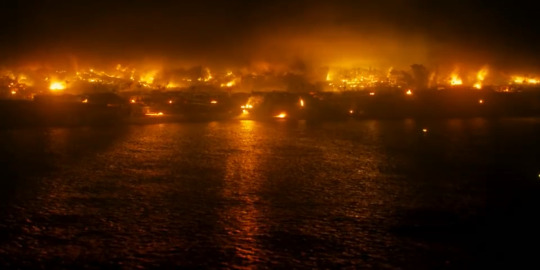
This is the duality of fire. It can be used for total obliteration, but it can also facilitate new life, as we saw in TOWL 1x1 Days, when Rick told the story of how his father burned down the farm, and how it flourished the next year.
During Rick's echelon briefing, we see the duality of the "fire" symbolism illustrated. Both Rick and Major General Beale talk about how you sometimes "have to burn things down in order to bring things back":
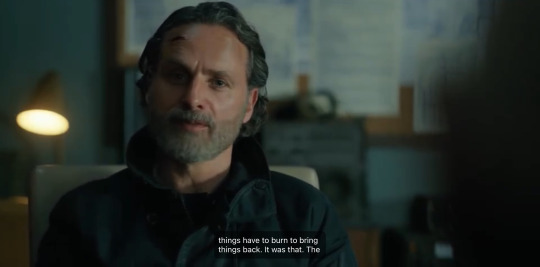
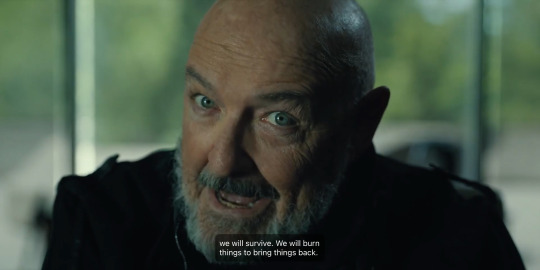
Both recognize the tremendous power of the fire symbolism, but they use the metaphor differently. Where Rick is ultimately interested in a good outcome as in facilitating new life, thriving crops and a sustainable future, Beale is literally talking about burning down cities, along with the people living in them.
In flashbacks seen during Major General Beale's Echelon briefing, we witness how the military used napalm on Atlanta and LA.
Napalm is, simply put, a fire bomb made from petrochemocals.
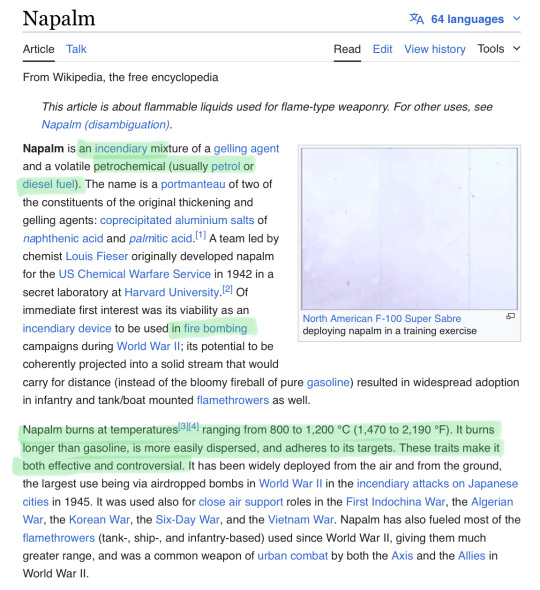
Let's explore the "fire = fuel" angle for a minute.
The opening minutes of 1x1 was our first introduction to the visuals and the symbolism of the show. We see Rick arrive at a gas station in search of fuel.
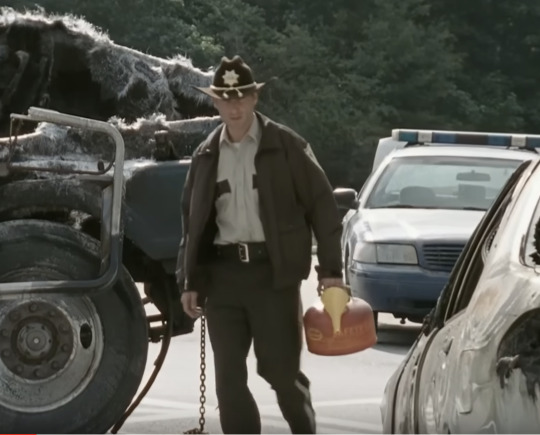
He only finds death and destruction, meaning that since the very first seconds of the show, the literal opening scene, we see gas, gas stations and fossil fuel surrounded by death symbolism. And, when we later learn that the military bombed the cities and killed countless civilians using napalm, we realise they used a firebomb made from petrochemicals.
The symbolism around gas stations as temples of doom continues, such as in 4x4 Indifference:

This sign quite literally labels the gas station as "hell". The people residing there had committed suicide. Keep this in mind, I'll return to it shortly!
The term "fighting fire with fire" was originally used to describe a technique of forest management, specifically in regards to how to manage wildfires, in which controlled fires were ignited in the path of a wildfire as a preventative measure:
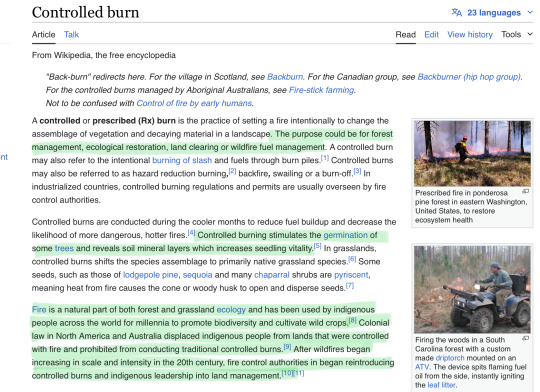
"Fighting fire with fire" as an expression has also often been used to describe vaccines, due to the way it was discovered that exposure to pathogens in some cases could trigger the immune system to produce antibodies against said pathogens, thus resulting in immunity:

When first we met the character Dr. Edwin Jenner at the CDC in TWD 1x5 Wildfire, his name was a reference to Dr. Edward Jenner, an English physician widely known as the “father of immunology”, due to his role in developing the world's first vaccine, against smallpox, in 1798.


It is not a strecth to say that this foreshadows a potential vaccine in TWDU. The virus is called wildfire. Vaccines are often said to be "fighting fire with fire". We learned about the wildfire virus from a character named after the guy who developed the world's first vaccine.
In TOWL 1x2 Gone, we see Michonne involved in a situation that sheds light on how the "fighting fire with fire" symbolism is utilized by TPTB. We see her trying to get through an enormous walker horde, it's a virtual ocean of death:
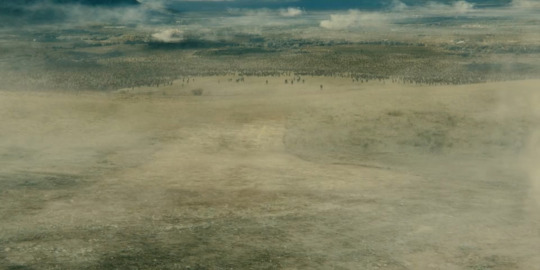

She tries to distract the walkers by shooting a small missile into the horde, which then explodes. Fighting fire with fire.
Eventually, Nat shows up and helps by adding more explosive fireballs, and the "ocean of death" parts to reveal a way forward.
Fighting fire with fire:

This also provides an interesting example illustrating how fire bombs can be used responsibly, in contrast to the way napalm was used by the military, who indiscriminately bombed cities, killing innocent civilians in metropolitan areas by incinerating them.
It shows that when the people, who have harnessed the tremendous power of fire, have the right intentions, it can be used for good. It shows the duality of fire, and it illustrates the duality of pharmakon, a poison and a cure.
Fighting fire with fire.
This guy stands out from the crowd, and I believe he tells us something about what the wildfire virus in TWDU in reality is a metaphor for:
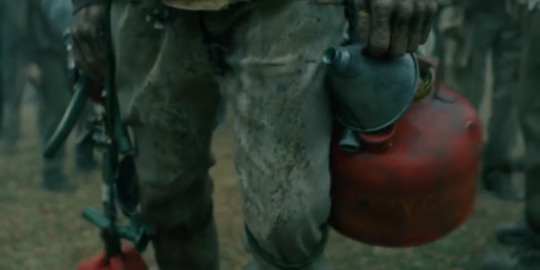

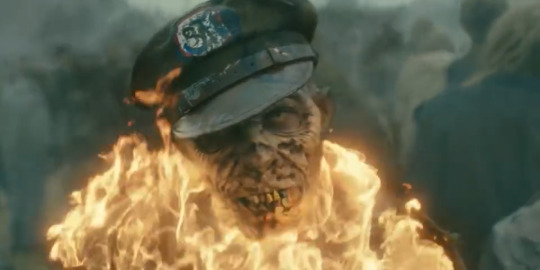
He's a callback to Rick, back in TWD 1x1 Days Gone Bye:
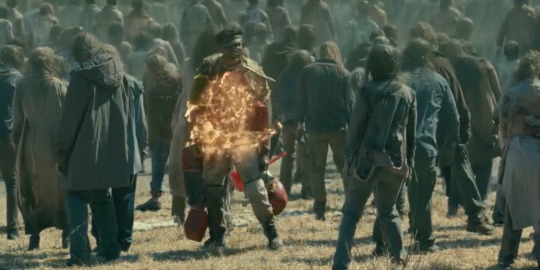

He beautifully illustrates the ominous nature of the fire symbolism, here represented by fossil fuels, or simply gasoline. We saw it herald death and dystopian hellscape at the gas station in 1x1, we saw it at the gas station in 4x4 Indifference, which was literally named "Hell", we saw it when napalm made from petrochemicals was used indiscriminately to destroy metropolitan areas on the North American continent and massacre anyone in proximity, infected or not.
And we see it again here.
The gas man is Mr. Wildfire Virus incarnate, a posterboy for death and necrotic life, a metaphor for "the old ways". He represents the disease, the plague, the extinction event...
He represents "the end" of humanity!
I don't think it's a stretch to say that the wildfire virus and the walkers in TWDU are metaphors for carbon emissions, the fossil fuel industry and the rapidly escalating threath of climate change to humanity. That's always been my interpretation, and that's solidified after seeing the gas man.
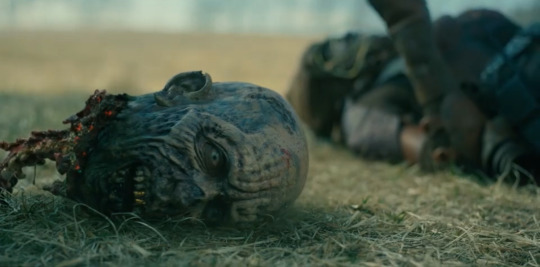
An interesting detail is how the gas man is shown here with gold teeth, as though he's illustrating the incredible wealth accumulated by the fossil fuel industry at the expense of the equilibrium of the ecology of the planet.
Seeing a gas man as the front figure and team captain of an enormous horde of the undead, an insurmountable obstacle, an ocean of death... it's not subtle.
A gas station innundated in death symbolism was the very first thing we, the audience, saw of TWDU, it was literally in the opening scene of 1x1.
And the gas man were among the last things we saw in what's so far one of the last episodes of the last spin off. But a few episodes later, we did see a glimmer of hope, and a potential way out of the mess...
The gas man functions as the face of the threat to humanity in TWDU, and was, in my opinion, inserted as a counter point to what we saw few episodes later, the ethanol as a representation of a "cure", an "antidote" in the back Richonne's escape car.
An electric/bio-ethanol hybrid car, no less...
Again, not subtle...
Bio-ethanol, a sustainable, renewable source of energy, is portrayed as a foreshadow of a sustainable future, in which humanity recovers and thrives.
A green(e) future?
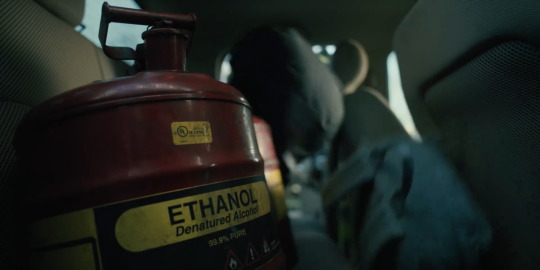

I wrote about how they in FTWD season 4, and in particular 4x16, explored the "ethanol = cure" theme in a post the other week, read more about it here.
Remember how we in TWD season 9, saw the production of bio-ethanol as an alternative source of fuel. We saw how crucial it was, in that Maggie was even seen trading produce for bio-ethanol.
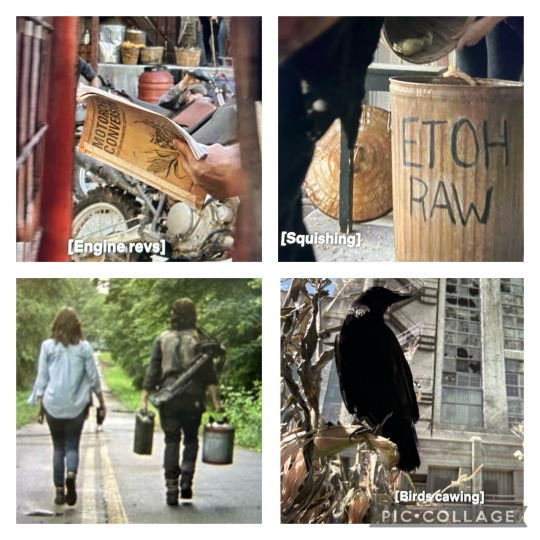
This is a theme TPTB also explored in TWD World Beyond, where especially Elton was concerned about the sixth extinction event, the Holocene extinction.
The kids in TWDWB called themselves "the Endlings", seeming to have accepted that they were among the last survivers of a humanity that was on a direct path to self destruction. Here's from an article in Comicbook.com:
"'Wind always wins,'" Elton tells Hope, borrowing a phrase from his mother who died at the onset of the apocalypse ten years earlier. "Something my mom said about nature deciding who lives and who dies. Turns out she was right."
He explains humans are "at the conclusion of the Holocene extinction," the sixth extinction event on the planet following the Late Ordovician mass extinction, the Late Devonian extinction, the End-Permian extinction, the Triassic-Jurassic extinction event, and the Cretaceous-Paleogene extinction event.
"We were already killing ourselves directly and indirectly, but nature made a shortcut," Elton tells Hope. "It took the dinosaurs possibly 60,000 years to die after 240 million of living, so following that ratio, given the human race's 600,000 and factoring in other miscellaneous variables, I say we have about 15 years until we're gone."
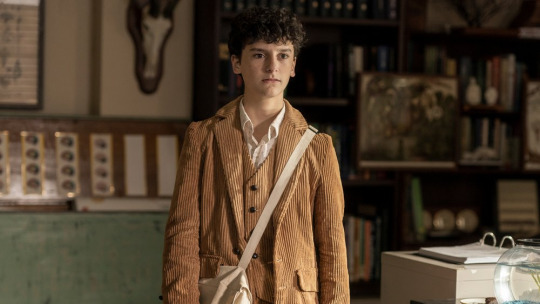
Elton was referring to the walkers when he talked about the threath to humanity, however, if the walkers are a metaphor for climate change, Elton's predictions of 15 years until we're extinct are sobering...
In TWOL 1x6, Major General Beale estimated non-necrotic, meaning human, life has 14 years left.
In real life, the doomsday clock is currently at 90 seconds to midnight (x)...
...we're nowhere near reaching the 2 degrees Celcius target...

...and 2023 was the hottest year on record.
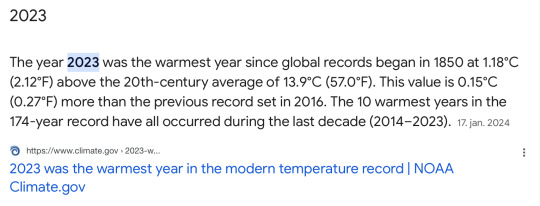
We're not doing great.
TPTB seem to be well aware, because...
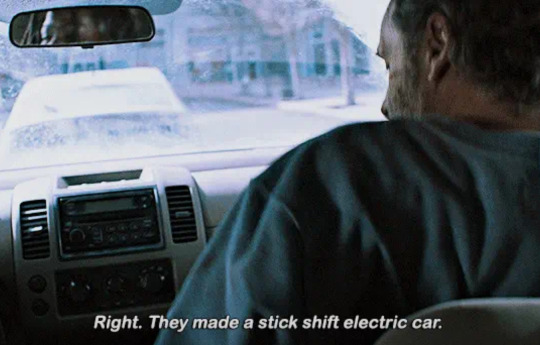
...here we see how an electric/bio-ethanol hybrid car represent the "antidote", the future, the "escape" from the extinction event.
Richonne's yellow stick shift electric/bio-ethanol hybrid car represents a potential way out of the imminent Holocene extinction. It represents an "escape" from the sixth mass extinction event, much in the same way a shift away from carbon emitting fossil fuels, to sustainable, renewable sources of energy represents the "cure" against climate change in real life.
But back to the narrative of the show. The accumulation of walkers represent a real threath to humanity, as Major General Beale correctly stated. What could the expression "fighting fire with fire", or "pharmakon", tell us about a potential "cure"? What could the "antidote" be, in the canon of the show?
During Rick's echelon briefing, Major General Beale raised a few issues that would be of legitimate concern, even if most of the rest he said were the ramblings of an authoritarian genocidal madman. He mentioned hordes of up to a million walkers, and he referenced studies suggesting non-necrotic life, meaning humans, could have as little as 14 years left before the the dead would outcompete the living. Millions of walking corpses, spreading diseases, polluting the soil, contaminating fresh water sources.
Those are legitimate concerns and would have to be dealth with. Fire could play a literal role.
Glenn told us in season one. "We bury the ones we love and burn the rest". From an infection contagion prevention point of view, it makes sense to use fire to destruct the wildfire virus. Fighting fire with fire. However, there must be some way to contain the virus while still preserving one's own hummanity. "We bury the ones we love and burn the rest". Unlike what happened during the mass murders of Operation Cobalt during the initial stages of the outbreak.
Again, fire, when used responsibly, could play a role in neutralizing the treath of the plague. It's pharmakon, a poison and a cure.
Fighting fire with fire.
And using fire as a contagion preventation measure was already built into the infrastructure at the CDC. We first saw it in 1x5 Wildfire, when Dr. Jenner accidently knocked over a vial containing samples from Test Subject 19, his late wife, upon which the lab went into full decontamination mode and erased any remaining trace of the pathogen in a great ball of fire.

Later, when the doomsday clock at the CDC reached zero, we watched the entire CDC explode, effectively destructing everything inside, including test samples containing wildfire as well as any other pathogen they might have kept in there.
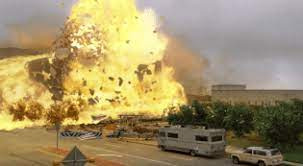
We also saw it on Hershel's farm in season 2, when the barn where he had kept the reanimated corpses of his loved ones while awaiting a cure, caught on fire. Although, that was more of a display of the symbolism involved rather than a depiction of how to scientifically contain a virus:

We've also seen it countless other times. Fire symbolism has been prevalent on the show since the very beinning, and there's a reason for that. It's because it represents pharmakon, a poison and a cure!
My hypothesis is that "fire" could play a literal role in the resolution of the zombie apocalypse. I also believe that it's likely the term "fighting fire with fire", or "pharmakon", could be meant to be interpreted figuratively, as in the develepment of some kind of cure/vaccine/treatment/immunity.
And like I explained in this post from a few days ago, connections to Beth is found everywhere in the symbolism surrounding these themes.
I mentioned her association with ethanol (as in moonshine = alcohol). I discussed the precedence set by Alicia from FTWD in regards to the bite/cure theory.
And finally, I've spent years now, talking about the Sirius symbolism that Beth has been absolutely immersed in. The word "Sirius" comes from Greek Seirios, which means "glowing", "scorching", it refers to Sirius the Dog Star, and it's associated with the scorching hot "dog days of summer".
"Sirius" symbolism IS "fire" symbolism, they're literally the same, and it ultimately means "return/resurrection/rebirth/reunion", as a reference to how Sirius the Dog Star periodically disappears from the night sky, only to return one morning, right before dawn.
I've talked about how Beth is deeply connected to the symbolism we see around Rick, I've talked about how they so often completely mirror each other and the resurrection symbolism around Rick is identical to the resurrection symbolism around Beth.
If "fire" is a part of the "cure" on the show, the fire symbolism includes resurrection symbolism, which we've seen countless exemples of around Rick and Beth.
And remember, the future is green(e)!
#team delusional#bethyl#daryl dixon#beth greene#team defiance#the walking dead#beth x daryl#twd#daryl x beth#twd towl#twd world beyond
33 notes
·
View notes
Text
The Devil(s) of Metal Fight Beyblde.
Dr. Ziggurat, the main antagonist of Beyblade Metal Masters, shares many parallels and similarities with the Christian Devil.
He is a ruthless and manipulative executive of an enterprise called Hades Inc., who enjoys making "deals" with other people. Note that Hades and Hell were interchangeably used in Greek mythology to describe the afterlife. The deals he makes are almost like demonic contracts: Zeo had to become a lab rat to save Toby, losing his sanity in the process. Ziggurat takes advantage of desperate people like Zeo and even Julian.
Ziggurat transformed Toby into Faust, whose name comes from the main character of a German legend. Faust, inspired by Johann Georg Faust, made a contract with the devil: Mephistopheles would serve him, and after a certain number of years, the devil would take his soul. Faust sacrificed his soul either to gain knowledge or for material and personal gain, depending on the version. Toby accepted the arrangement against his will, and even if he was cured, he lost himself in the process. He can play Beyblade again, but as Faust, he is only a soulless tool.
The doctor himself seems to have "sold his soul," since he doesn't care about ethics or the fact that he is using children for his experiments. Hikaru explicitly said that some of the bladers incompatible with the arrangement system were so impacted by it that they had to end their careers.
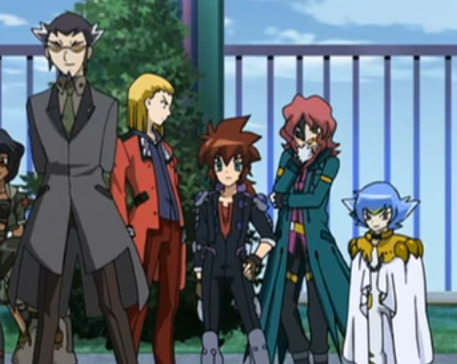
Physically, Ziggurat appears taller than most of the cast, though this is because they are all children. He has spikes of hair at the back of his head, like Damian, that emulate horns. He also wears a dark gray suit, which contrasts sharply with all the colorful characters (even his collaborators, Daidoji and Pluto, seem more colorful than him). He is as gray and dark as the hellish world Damian creates with his Kerbecs.
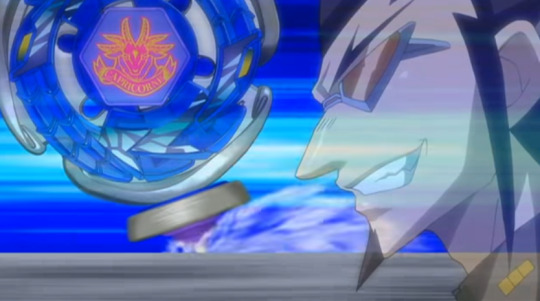
His name comes from ancient structures called ziggurats, built by the Mesopotamians for cult practices. Daidoji's name means (literally) "great road/way to the temple". They were both part of the Hades cult, lead by Pluto who lived in a temple. However, Ziggurat can also be a reference to the German word "Ziege," which means goat. Ziggurat's design also emulates the animal, with his goatee and spiky hair. His Beyblade is Spiral Capricorn, and in the anime, its Bey beast is often depicted as a simple goat.
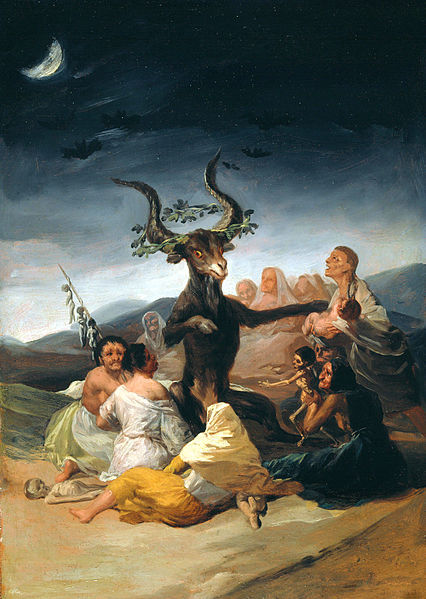
This animal is often tied to the Devil and is one of the forms it takes. The painter Goya depicted a gathering of witches with "Witches' Sabbath" (Goya, 1798), where the Devil takes the form of a goat and is offered children to eat. While the doctor doesn't (seem to) eat children, he effectively despises them and shows a lot of disdain towards them. He also steals their innocence in a way. Zeo and Toby do not take back their Aries Bey; they now use Beys with the Spiral fusion wheel, reminiscent of Spiral Capricorn. Aries is a sheep and is typically associated with innocence. They cannot go back to who they were; they are permanently scarred by what they have been through during their time in Haves Inc.
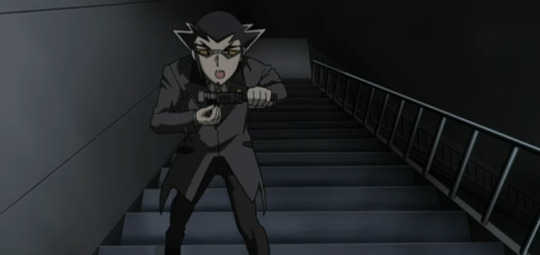
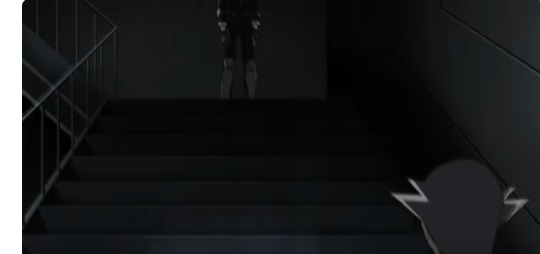
In the scene where Zeo is stopping Ziggurat, he is at the bottom of the stairs, symbolizing a shift in power dynamics between them. This positioning could also symbolize Zeo casting Ziggurat back to Hell, as Hell is below the Earth in popular culture.
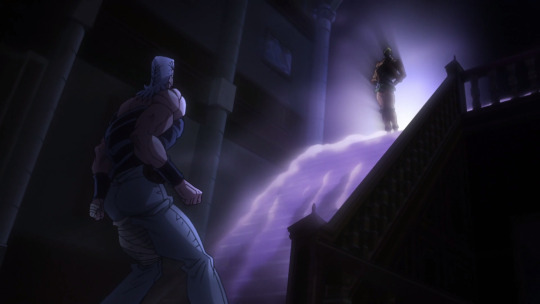
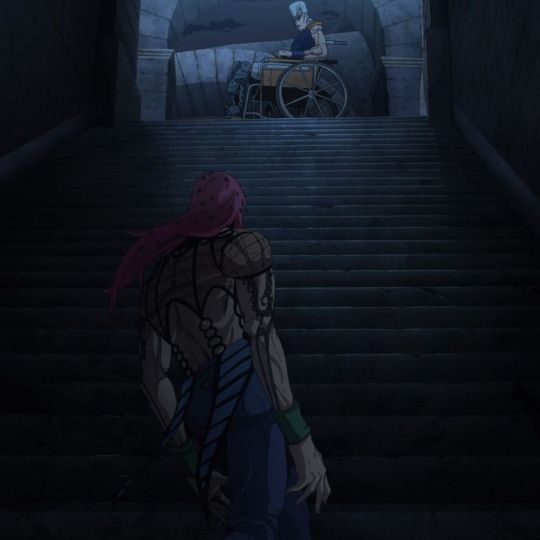
"JoJo's Bizarre Adventure" has previously utilized its antagonists, DIO (assimilated to God) and Diavolo (a mafia boss, assimilated to the devil), in a similar manner. DIO is upstairs (heaven), while Diavolo is at the bottom of the stairs (hell). I would add that in the Metal Saga, it is common for villains to fall: Nemesis and Daidoji fell into a pit, and Hades City fell into the abyss of the sea.
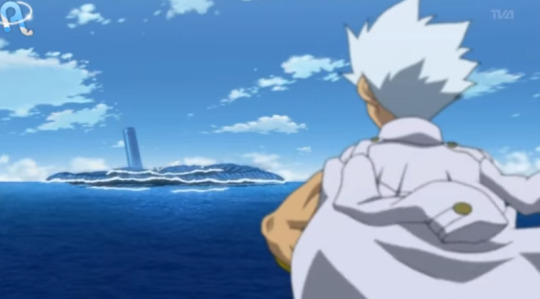

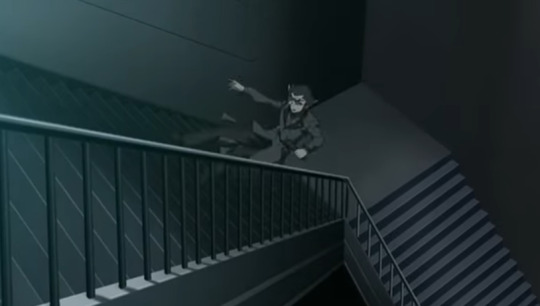
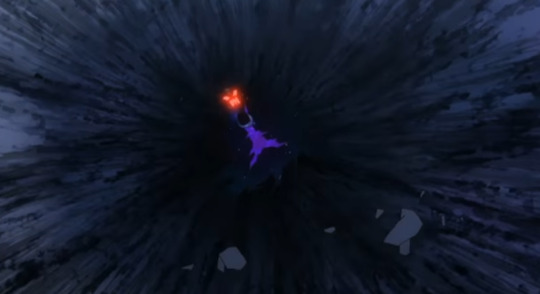
These falls can be interpreted as both a physical defeat and a symbolic triumph over an evil that is cast back into hell.
Ziggurat is a more traditional version of the devil who makes deals with people and manipulates them, while Nemesis embodies the devil of the apocalypse, wishing for total chaos.
#mfb#metal fight beyblade#metal fury#zeo abyss#character analysis#julian konzern#toby beyblade#daidoji#doji beyblade#pluto beyblade#nemesis beyblade#jojo no kimyou na bouken#jjba diavolo#dio jjba#damian hart#dr ziggurat#ziggurat beyblade
34 notes
·
View notes
Note
hozier songs you recommend??
honestly?? all of them. but ik that's not the answer we're looking for here so i'll list my personal favorites & then group his songs so they're easy to sort thru based on what ur looking for!!
my personal favs:
- abstract - jackie & wilson - sedated - run - as it was - work song - francesca - shrike - arsonists lullaby - why would you be loved
now, i'll group them into sections so u can figure out what u like best & choose from that group. idk if you're into upbeat songs or slow ones, so i feel this is most accessible for more people yk?? also, btw, the songs can overlap (like one song can be placed under two groups if it falls under those headings simultaneously)
what is italicized (excluding the descs in the political section) are the songs that are most related to the grouping - ie the songs most romantic or the songs most sad
upbeat / fast-paced songs
- dinner & diatribes - angel of small death & the codeine scene - take me to church - foreigner's god - empire now - too sweet - first time - almost (sweet music) - damage gets done - be - movement - sunlight - to noise making (sing) - eat your young - why would you be loved
slowest songs
- i, carrion (icarian) - cherry wine - to someone from a warm climate - unknown / nth - as it was - wasteland baby - wildflower & barley - work song - that you are - son of nyx
songs between slow & fast
- someone new - jackie & wilson - to be alone - in a week - sedated - abstract - it will come back - who we are
saddest songs
- cherry wine - as it was - wasteland, baby! - shrike - abstract - swan upon leda
most romantic songs
- in a week - from eden - like real people do - work song - talk - abstract - it will come back - NFWMB - would that i
political / activist songs
- swan upon leda ; (i have an in depth analysis on this song's meaning posted here) - nina cried power ; discusses importance of protesting & speaking out on world issues - take me to church ; condemns religious dogma / particularly toward the queer community - eat your young ; anti-war, pointing out how inhumane it is for children to be involved in such conflicts - jackboot jump ; criticizes capitalism & fascism - butchered tongue ; talks about the forms of torture used in the 1798 irish rebellion (it is also important to note that Hozier spoke out and said that every song is political in some way, these are just the most obvious in my eyes)
songs that tell a story
- in the woods somewhere - in a week - arsonist's lullaby - shrike - blood upon the snow - it will come back - who we are - all things end
his most popular songs
- take me to church - too sweet - from eden
songs w references to greek myths
- swan upon leda - talk - from eden (ofc?) - sedated - sunlight - i carrion (icarian) - movement - be - abstract - unknown / nth - first time - jackie & wilson - son of nyx
songs that i've talked abt
- swan upon leda - in the woods somewhere - talk - abstract - first time
if you ever want more songs to be analyzed or if you have any questions on why a song was added to a certain group, just ASK. pls pls pls, talking about hozier is literally my favorite thing in the world
i jump with joy every time someone brings him up, i kid you not.
#eri yaps abt hozier (again) ⋆˚⟡˖ ࣪#⋆˚𝜗𝜚˚⋆ ┆ eri’s asks.#vxsellie !#asks#andrew hozier byrne#song recs#all Hozier songs#on accident tho#i didn't mean to add all#ok there's prob a few missing#but im just noticing how many are here#im so sorry
9 notes
·
View notes
Text
Tempered in the Fire (Blacksmith!Din Djarin AU) - Masterlist
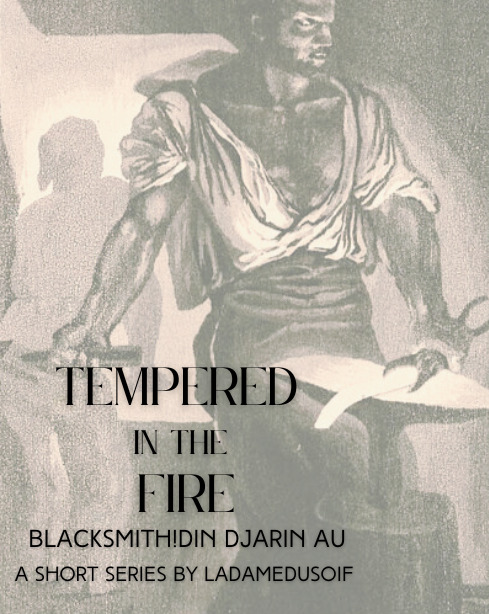
With his hammer in his hand/He looked right clever… (‘The Blacksmith’, British or Irish folk song from the early nineteenth century)
Series Summary:
Ireland, almost a decade after the rebellion of 1798 was brutally suppressed. In this seemingly quiet part of the country, the people work the land and stay quiet about the recent past. You are an unusual woman in this little world: married, but living alone; a widow, with no certainty that her husband is dead. You have made your own life since he vanished into thin air, managing the smallholding you live on and making some extra money through your skills as a seamstress.
This is a time when the local blacksmith is at the heart of any rural community. One such smith is a man of few words, whose uncertain origins and dark complexion make him stand out among the locals, but whose skills with hammer and anvil have rendered him indispensable. When your local blacksmith is badly injured in an accident and unable to work, you have no choice but to travel on to this man’s forge - and are immediately intrigued by this mysterious, taciturn figure…
Pairing: Blacksmith!Din Djarin x F!Reader
Rating: Mature (series); Explicit (eventual chapters)
Content: Blacksmith!Din AU; historical setting; references to violence; references to domestic abuse; period-appropriate terminology and misogyny; anti-Travelling people discrimination; alcohol; strong language; explicit smut (eventually); technical infidelity; almost certainly incorrect depictions of blacksmithing; some slightly dodgy history (I literally took advanced seminars in this topic but come on, it’s fic); most likely some not quite correct Irish language content (again, I studied it for years so forgive me and move on).
Cross-posted to AO3.
Author’s Note: I spotted a sign at Disneyland for ‘Rose’s Forge’ and @julesonrecord and @lunapascal were immediately on the “which P boy would be a blacksmith?” train. And there’s only one answer, isn’t there? It’s Din.
This is intended as a short series of around four chapters - essentially a chance for me to scratch the blacksmith!Din itch, while also indulging in some historical fiction set in my homeland. In part, it’s inspired by the image of the blacksmith in eighteenth and nineteenth century popular culture and their role in supplying rebel weaponry in the 1798 uprising against British rule.
And it’s also inspired by the image of Din sweaty and beautiful at an anvil, because why the hell not?
The image I’ve used for the header image, by the way, is a wonderful engraving from about 1833 by the French artist Eugène Delacroix, who’s one of my absolute favourites. It’s called ‘Un Forgeron’ (A Blacksmith) and you can see it in all its glory here. (Yes, it’s hot as fuck.)
Chapter List:
Part One
Part Two
Part Three
Part Four
#tempered in the fire fic#din djarin au#din djarin fanfiction#new fic announcement#fic coming soon#historical AU#the mandalorian au#the mandalorian fanfiction#blacksmith!din djarin#blacksmith!din djarin x f!reader#pedro pascal character fanfiction
235 notes
·
View notes
Note
Hii
Would you ever create a timeline for your Walton character study or in companionship with your fic?
Obviously no pressure to do so.
Thanks!
hiiii omg that’s such a great question! so i have been keeping track of the timeline i’m working off and basing the structure of my writing around in my notes because i’m a massive nerd about these things lol
it’s something i’ve given a lot of thought to since it involves both canon elements (e.g. the dates and months given for certain events in walton’s letters) and headcanon stuff that i have come up with by extrapolating on existing information in the novel itself
so for example, i decided robert and margaret were born in 1770 because:
walton’s voyage must take place in the 1700s because of the incomplete dates given in the letters throughout the novel (17—) among other reasons
walton’s references to coleridge (and the others throughout the novel) can be interpreted as just allusions to shelley taking inspiration from a fellow author she respected and knew personally, but i decided to take walton’s familiarity with his work literally and factor it into figuring out the exact time frame of his voyage — the rime of the ancient mariner in coleridge and wordsworth’s lyrical ballads was published in 1798, meaning that the earliest walton’s narrative could have began was the winter of that year. since the first letter to margaret is dated december and the last in summer of the next year, that means he would have set out from archangel in june 1799 and met victor in august
in his second letter dated 28th of march walton states that he is 28 years old; working backwards, he would then have been born in either 1770 or early 1771; i chose the former because i had already decided he and margaret were born in december (they’re sagittarius! ♐️)
sorry that’s SO long-winded and not what you asked about at all lmao but hopefully it explains how i’ve figured out some of the pre-canon stuff in my timeline at least!
the post-canon stuff that i’m working on at the minute is more tricky as there’s obviously no book information to go off of and i’m literally just making stuff up helpppp
ALL OF THIS TO SAY! i will definitely work on creating and posting a timeline for the whole thing that i can update as i go (since there’s stuff that i have planned for the future that i don’t want to spoil until i post those chapters) and that people can check out if they’re interested!
clearly i get very uhhh very excited when people ask about my fic so tysm for indulging me 🥺
#allowing me to ramble about my fic is dangerous but i appreciate being given the opportunity#walton tag#asks#autism be damned that boy can create a detailed timeline
5 notes
·
View notes
Text
Pluto in Aquarius: The Last Time This Happened, the World Changed Forever—It’s Happening Again Now
Alright, let’s talk Pluto in Aquarius—because every time this cosmic wrecking ball hits this sign, the world proper kicks off. We’re talking revolutions, radical tech shifts, power struggles, and entire systems collapsing. And guess what? We’ve just stepped into this energy from 2023 to 2044.
The last time Pluto did this dance? The late 1700s. Yeah—when people chopped off monarchs’ heads, tore down old regimes, and started talking about democracy, human rights, and freedom. The time before that? The 1500s, when religious power crumbled, the printing press spread radical ideas, and science told the Church to get lost.
So buckle up—because this isn’t just astrology, this is historical patterning, and it’s wild.
1777–1798: The Age of Revolutions
This was Pluto’s last trip through Aquarius, and the world went upside down.
1. The American Revolution (1776–1783)
The USA was literally born under Pluto in Aquarius. Before this, monarchs ruled like they were put there by God. Then the American colonies went, “Nah, we’ll do it ourselves”, kicked Britain out, and built a democratic republic. It was the first time people properly rejected monarchy and demanded self-rule.
2. The French Revolution (1789–1799)
And then France took things to the extreme. People were starving, the monarchy and aristocracy hoarded wealth, and then Pluto in Aquarius said, “Right, get rid of ‘em.”
• The Bastille was stormed.
• The Declaration of the Rights of Man and of the Citizen was signed.
• King Louis XVI and Marie Antoinette? Beheaded.
• A full-on anti-royal, anti-elite revolution exploded.
People weren’t just annoyed—they abolished the monarchy and completely restructured society.
3. The Industrial Revolution Kicked Off
While people were busy overthrowing kings, Pluto in Aquarius also went, “Let’s speed up human progress.”
• Steam engines started running factories.
• Machines replaced manual labour.
• People left farms for cities, and modern industry was born.
This was the birth of automation, and it changed work forever. It wasn’t just a tech upgrade—it was a societal upheaval.
4. The Haitian Revolution (1791–1804)
This one’s massive but often overlooked. The enslaved people of Haiti said, “We’re done.” They rose up, fought off their French rulers, and became the first free Black republic. It was the only successful slave revolt in history that actually led to a country gaining independence.
Pluto in Aquarius = Power shifts. Old orders crumble. People take control.
1532–1553: The Reformation & Scientific Breakthroughs
Going back even further, we see Pluto in Aquarius smashing the religious elite and introducing big ideas that reshaped the world.
1. The Protestant Reformation (1534 Onwards)
Before this? The Catholic Church owned Western Europe. If you weren’t Catholic, you were a heretic. Enter Pluto in Aquarius.
• Henry VIII split from the Pope and created the Church of England—just because he wanted a divorce.
• Martin Luther had already kicked off the Protestant Reformation (1517), challenging the Church’s authority.
• The Bible was translated into local languages, so regular people could read it instead of just priests.
The religious monopoly collapsed. Power shifted from the Church to the people.
2. Science Told the Church to Sit Down
• Copernicus published De revolutionibus (1543), proving the Earth orbits the Sun. Before this? The Church had spent centuries saying the Sun revolved around Earth.
• The printing press spread new ideas FAST. Before, knowledge was locked up by the elite. Now? Anyone could learn.
Pluto in Aquarius again—disrupting power structures and accelerating human progress.
2023–2044: What’s Happening Now?
So we’ve just entered another Pluto in Aquarius era, and we’re already seeing the same patterns:
1. Digital & AI Revolution
In the 1700s, Pluto in Aquarius gave us steam power and industry. Now? AI, automation, and the next phase of technology.
• AI is already replacing jobs—just like machines did in the 1700s.
• Decentralization is rising—people want power away from governments and corporations.
• Cryptocurrency, digital governance, and automation are reshaping money and control.
This isn’t just new tech—it’s a societal shift in how we work, think, and operate.
2. Political & Social Upheaval
Governments are struggling to keep control—people are demanding freedom, autonomy, and new systems.
• Protests are happening everywhere—from Iran to the US, from France to China.
• Monarchies & old power structures are weakening.
• People are rejecting elite control.
Much like in the late 1700s, Pluto in Aquarius is challenging those in power.
3. Space & Scientific Breakthroughs
• Private companies (like SpaceX) are taking over space travel.
• We’re closer than ever to AI merging with humans (Neuralink, robotics, biotech).
• Fusion energy & quantum computing are on the horizon.
Pluto in Aquarius doesn’t just change society—it pushes science and tech beyond what we thought was possible.
What Happens Next?
Pluto in Aquarius always brings power shifts, decentralization, and disruption. Looking at history, we can expect:
✔ More technological revolutions.
✔ People reclaiming power from elite structures.
✔ Radical new governance ideas—maybe digital democracy, AI-led systems, or something we can’t even imagine yet.
✔ Space colonization accelerating.
✔ Massive job transformations—just like the Industrial Revolution.
But here’s the thing—Pluto doesn’t care if you’re ready. It just changes everything.
So, like it or not, the old world is ending, and something entirely new is emerging.
Are you going to fight for the future—or cling to the past? Because Pluto in Aquarius doesn’t do nostalgia. It’s already moving forward.
🔥 Your Thoughts?
Feeling this shift already? What’s the wildest change you think we’ll see? 🚀👇
Follow The Lantern’s
Glow
5 notes
·
View notes
Text
The whole interview is well worth a read, but here’s a few highlights
Hozier tactfully addressing the internet lust brigade:
Hozier may find comfort in maintaining a certain level of mystery. Earlier this year, a Spotify user shared a playlist titled submissive men !! that featured four Hozier songs, including “NFWMB,” from his 2018 EP Nina Cried Power. The musician finds his inclusion on the playlist “interesting” and raises his eyebrows at the idea that he might have some songs out serving as theme music for all the subby boys out there.
“I think I’m glad most people don’t know me all that well,” he says. “Sometimes I think the negative space between me and the actual me and fans is filled with very, I think, attractive descriptions of myself or attractive imaginings of myself.”
Hozier on the politics of his music:
That said, he doesn’t want his music used for causes he doesn’t support. “What I’m concerned [with] is if it gets co-opted for something that’s harmful or deliberately harmful,” he says, his voice becoming firmer with his conviction. For as many love songs as Hozier sings, he is equally committed to social justice and calling attention to inequality and oppression. In “Butchered Tongue,” from Unreal Unearth, he highlights the colonialist practice of forcing indigenous peoples to abandon their mother languages. He also directly references pitchcapping, an ancient form of torture famously used by the English to put down the Irish Rebellion of 1798. Pointing out the atrocities of the world is as important to him as declarations of undying love.
“I'm very interested in Irish history, but I find that Irish history– it’s one little microcosm of something that happened across the world, you know what I mean? And so my understanding, the history of my place, where I come from—it informs my understanding of imperialism, of global imperialism, and it informs my understanding of global power structures,” he says. “They’re part of my psychic makeup, just from what I understand of my own country’s history, my own nation’s history. … It colors the lens, as it were, with how I see the world.”
Hozier on fans ignoring the influence of Black artists on his music:
“This is kind of part of the wider thing … I can talk about my influences being of Black artistry. It’s mentioned all the time. It is in the work. It’s literally in the work … and it’s just something that is not taken seriously,” he says.
Black fans have often taken to social media to express their own frustration at how white fans conveniently ignore Hozier’s tributes to Black artists, praising him instead as a ridiculously tall forest elf from a magical land far, far away. But Hozier says it’s natural for him to pay homage, to take care of the work he’s built his own on.
“It just seems strange that it wouldn’t be part of the conversation,” he says. “And it’s so fundamental to my influence. I named the songs after Black artists, and the work is signposted constantly back to it. I just try to be honest with it as best I can, and try to approach that conversation with the spirit of honesty and openness.”
44 notes
·
View notes
Text
My favourite figure in irish history? the guy from munster who somehow ended up fighting with the ulster united irish army (which was not only almost entirely presbyterian but also made up of people who had quite literally grown up hearing first hand about how awesome fighting under our great king billy was at their grandda's knee) in 1798 and, upon taking command of his regiment, exclaimed, in front of all his men, something along the lines of "lmao let's KILL them just like the true stuart king did with those orange cunts in 1690 🫡" thereby pissing off so many people so much that it was recorded word for word for posterity
#if you ever make a remark and it lands poorly consider that at least you aren't larry dempsey talking about how you wish the orangies had#lost the battle of the boyne to the army of the people's republic of sucking off the glorious revolution in 1798#irish history#jory.txt
21 notes
·
View notes